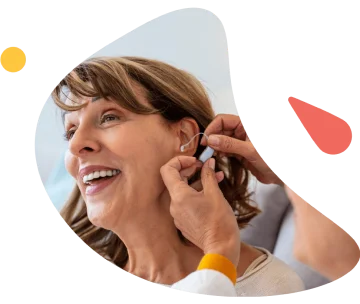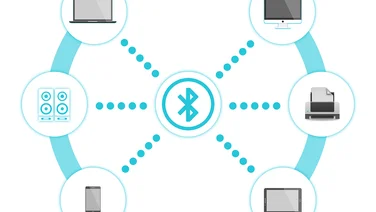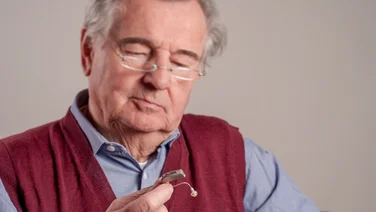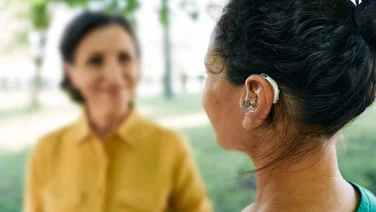Whether you’re considering using a hearing aid for the first time, or you’ve been wearing one for years, your hearing aid batteries are one element you should not neglect.
Hearing aid batteries are as important as the hearing aids themselves. Without batteries, hearing aids, quite simply, wouldn’t work.
The type of batteries used will depend entirely on the type of hearing aid you have.
Types of hearing aid batteries
Many hearing aids use disposable batteries. You simply place them into your hearing aid and when they run out of power, you replace them.
However, as technology advances, more hearing aid manufacturers now make hearing aids with rechargeable batteries.
Rechargeable hearing aid batteries
Some hearing aids come with rechargeable batteries. With this type, the battery (usually lithium-ion) is built into the hearing aid, which essentially makes the hearing aid rechargeable.
When the hearing aid charge does run out, instead of removing and replacing the battery, you can simply place the hearing aid on charge.
This is normally done by removing your hearing aids and connecting them to a docking station, which must be plugged into a power outlet. Most people remove their hearing aids at night, which is a good opportunity for your hearing aids to get a full charge.
Can I use rechargeable hearing aids?
Rechargeable hearing aids might be suitable for you if you have mild to severe hearing loss.
Most rechargeable aids are receiver in the canal (RIC) hearing aids. If you prefer smaller, discreet hearing aids, like completely in the canal (CIC) or invisible hearing aids, you may not be able to get them with rechargeable batteries.
Rechargeable hearing aids have the advantage of being easier to use if you have poor dexterity because you won’t have to handle the small, delicate, disposable batteries when they need to be replaced.
The lifespan of rechargeable hearing aid batteries
The battery life can vary, depending on the hearing aid’s manufacturer, model, and how you use your hearing aids. For example, streaming audio using Bluetooth can drain your battery fairly quickly, just as it does with smartphones.
Overall, rechargeable hearing aid batteries can last up to five years before they need to be replaced.
Disposable hearing aid batteries
If your hearing aid uses disposable batteries, they are likely called ‘zinc-air’ or ‘button’ batteries.
They’re called button batteries because they’re round and flat, just like buttons. Zinc-air means they are zinc batteries that are activated by exposure to air.
This type of battery is manufactured with a sticky tab covering its surface to seal it from air exposure and keep it inactive until you’re ready to use it. When you do peel off the tab and oxygen from the air reacts with the zinc in the battery, it is activated.
If you remove the tab, placing it back onto the surface of the battery won’t deactivate it.
Can I use disposable hearing aid batteries?
All types of hearing aids – behind the ear (BTE), in the ear (ITE) and receiver in the canal (RIC) – are available with disposable batteries. This means you can use hearing aids with disposable batteries whether your hearing loss is mild, moderate, severe, or profound.
The advantage of disposable hearing aid batteries is that when they have run out, you don’t need to leave your hearing aids out for any length of time, nor do you need access to a power source.
You simply take out the drained battery and replace it with a new one. Used batteries shouldn’t be thrown out with regular trash and must be disposed of safely. You can usually recycle them at a local battery recycling point.
The lifespan of disposable hearing aid batteries
The shelf life of disposable hearing aid batteries varies and depends on many factors, inlcuding how often and how long you wear your hearing aids, whether they’re basic aids or have advanced features, and the degree of your hearing loss.
On average, a zinc-air battery can last between three days and three weeks before it needs to be replaced.
As long as the tab hasn’t been removed, unused disposable batteries can be stored at room temperature in their packaging for two or three years.
Disposable hearing aid battery sizes
Disposable batteries for hearing aids come in four sizes, each with different capacities. Generally speaking, the larger the battery, the greater its capacity – and the greater its capacity, the longer the battery will last.
That isn’t set in stone, and many factors will impact how long your hearing aid battery will last.
The quick-reference table below shows the four different sizes of zinc-air batteries, from smallest to largest, their capacity (measured in milliamp hours – mAh), their universal tab color, and their different uses.








